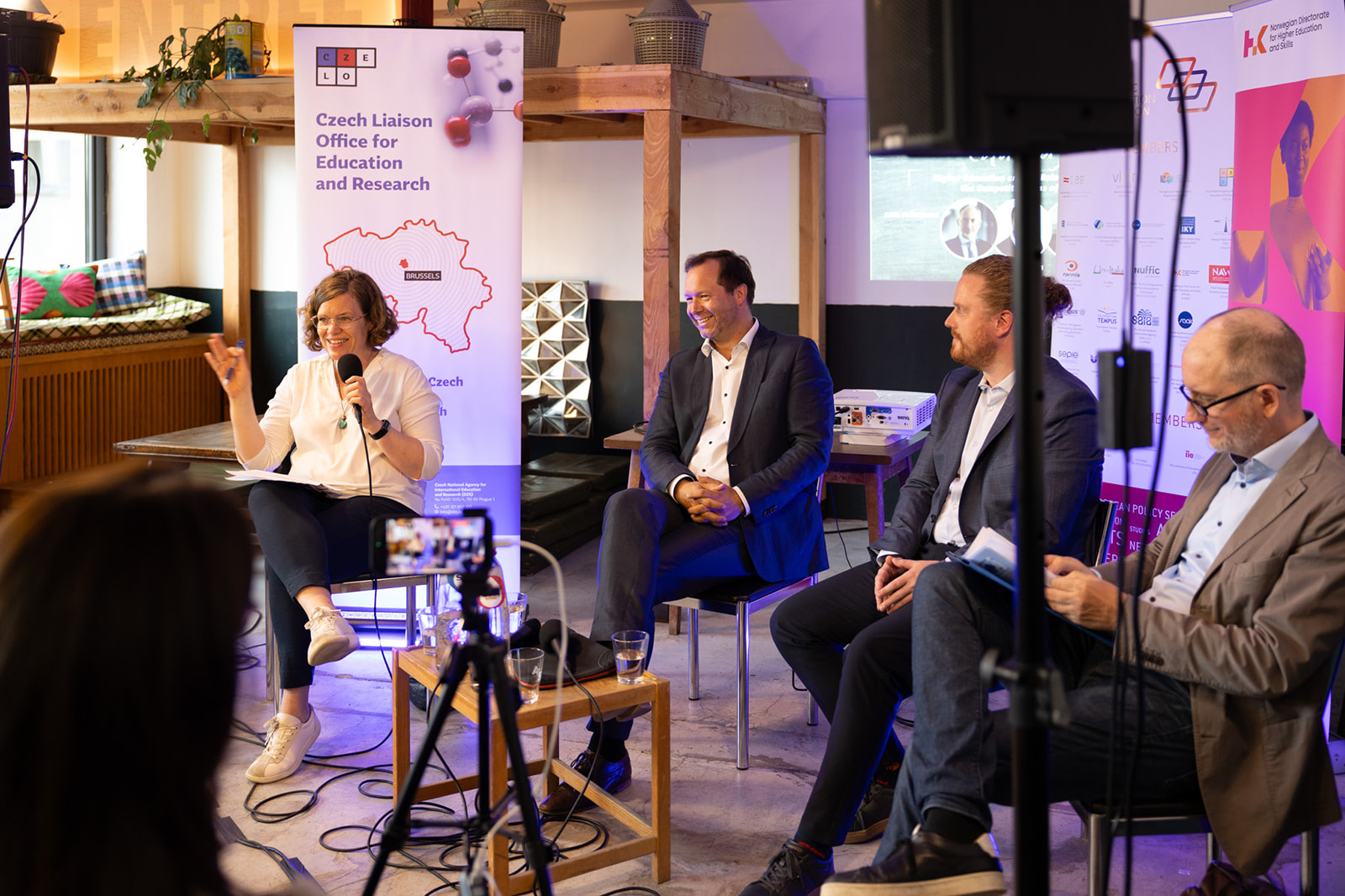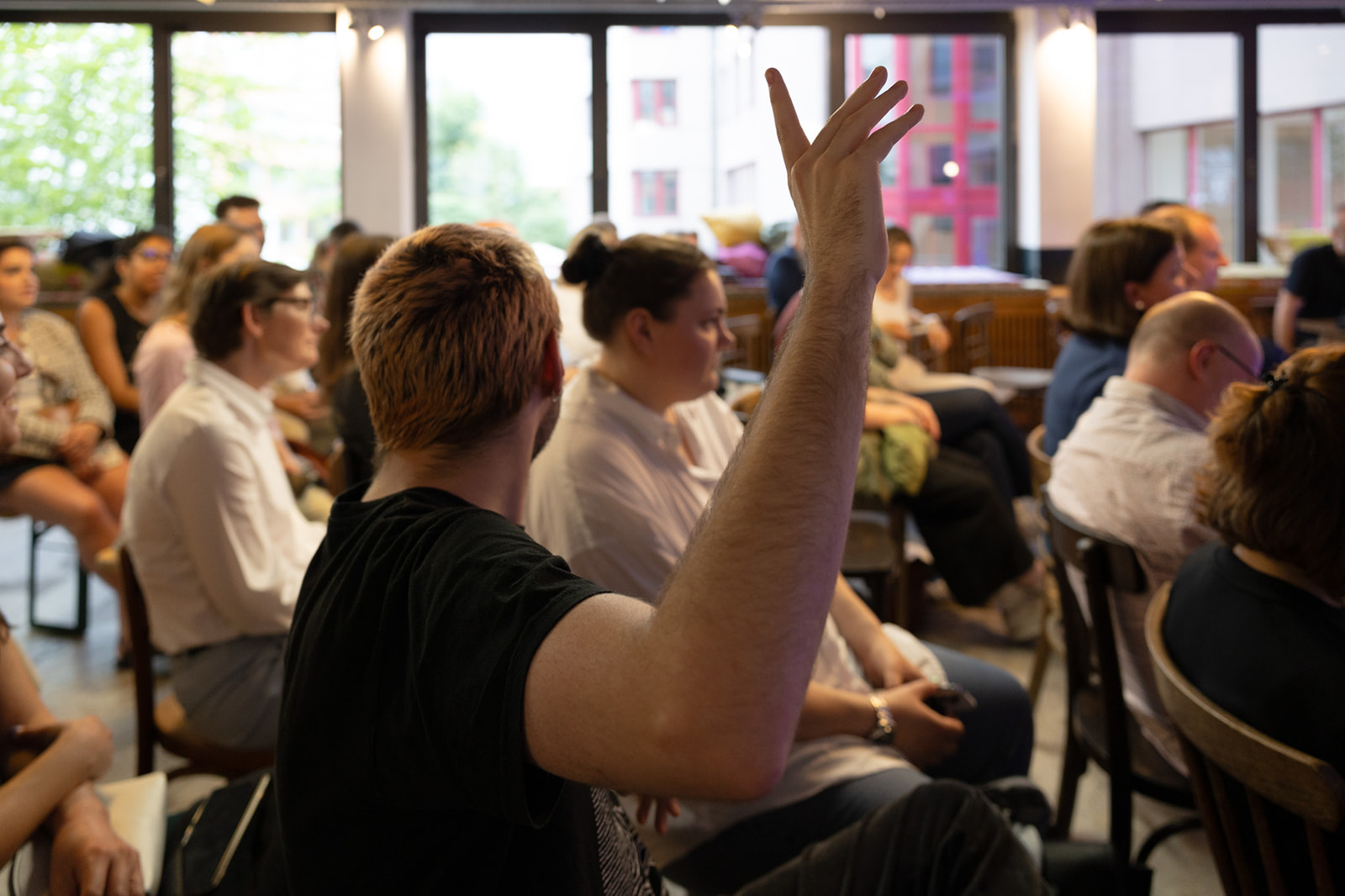A More Competitive Europe Thanks to Universities? Summer EduCafé Opened the Debate on Education and the Labour Market
The final EduCafé before the summer break focused on the role of higher education in Europe’s competitiveness.
This year’s second EduCafé took place on Thursday, 26 June, in cooperation with the Norwegian Contact Office for Research, Innovation and Education (NorCore), the German Academic Exchange Service (DAAD), and the Academic Cooperation Association (ACA). The event was held at Kamilou in the heart of Brussels’ European quarter and attracted around 40 participants from both expert and general audiences.
The debate featured Jakub Štolfa, researcher at VSB – Technical University of Ostrava and President of the Automotive Skills Alliance; Stefan Zotti, Deputy Head of the Higher Education Unit (B1) at the European Commission’s Directorate-General for Education, Youth, Sport and Culture (DG EAC); and Axel Plünnecke, Head of the Education, Innovation and Migration Cluster at the German Economic Institute (IW). The discussion was moderated by Ragnhild Solvi Berg, Senior Advisor from the Norwegian Contact Office for Research, Innovation and Education.

Academic Excellence and Practical Skills
The debate opened with Axel Plünnecke, who highlighted Erasmus+ as a key tool in shaping a confident, adaptable and culturally open workforce. The ability to work in international teams and solve problems creatively is one of the most essential qualities across both public and private sectors. Jakub Štolfa added that Erasmus+ also offers extensive opportunities in academic staff exchanges, which positively influence the entire educational ecosystem. According to Stefan Zotti, one of the most important recent EU initiatives is the Union of Skills, through which the Commission aims to support inclusive access to Higher Education, along with the development and support of basic skills, microcredentials and Individual Learning Accounts.
Later in the debate, the speakers addressed more specific questions based on their expertise. Jakub Štolfa, who focuses on the transformation of the automotive sector and skill development, was asked how universities can collaborate closely with employers without compromising educational quality and academic autonomy. One option is the Pact for Skills, a framework for implementing the updated Skills Agenda while supporting the dissemination and application of Innovation Alliances project results. A practical solution could be to offer academics part-time contracts, allowing them to also work in the private sector and transfer their knowledge and experience back into education.

The Right Balance Between STEM and Humanities
Axel Plünnecke was asked how universities can balance the growing pressure to provide practical skills and respond to labour market needs with the need to maintain academic excellence. His answer emphasized the importance of helping young people freely develop their talents, for instance through early career counselling. This also includes supporting girls and young women in STEM fields, where their representation remains low despite the sector’s significant potential for human capital and innovation.
Stefan Zotti addressed how the European Union should strategically invest in higher education to promote both economic competitiveness and social cohesion. In his view, it is crucial to take a broad perspective, as concrete future developments are inherently difficult to predict. In this context, universities of applied sciences play an essential role in bridging the gap between theoretical education and the practical skills required by the labour market. Axel Plünnecke further added that all sectors have their irreplaceable role: humanities, for example, are vital for understanding global transformations and responding to the challenges of our time. While the importance of STEM fields is undeniable, many current trends transcend them. Artificial intelligence, for instance, must also be studied from social, legal and economic perspectives.
In the closing part of the event, audience members raised questions on ways to further support girls in technical fields and broaden inclusion in higher education, including through upskilling and reskilling initiatives. After the debate, participants had the opportunity to continue the discussion informally over a glass of wine.
A recording of the debate will soon be available on our YouTube channel.